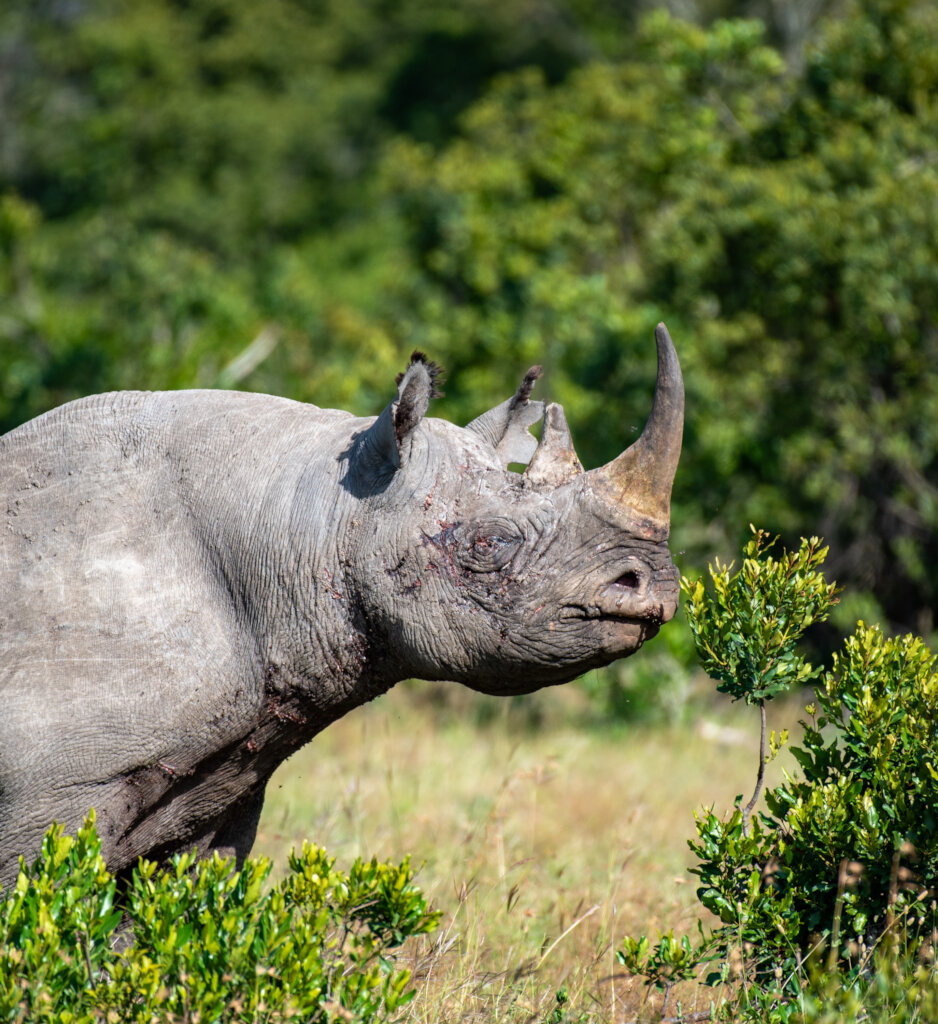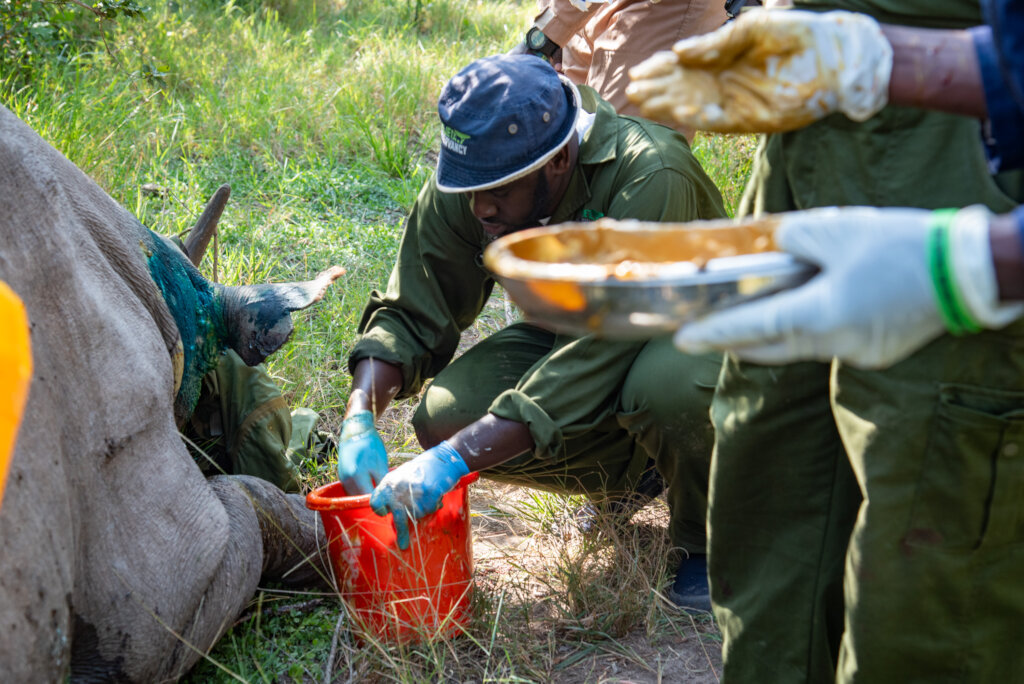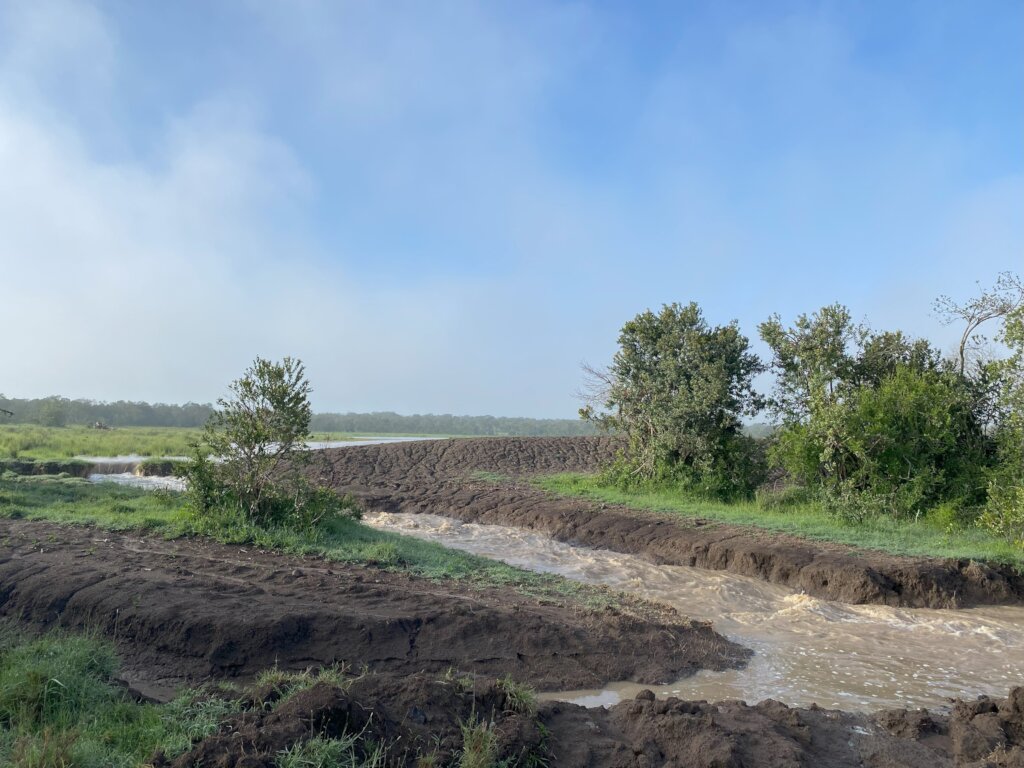By Domenica Dryer | Project Leader
As 2023 draws to a close, we are delighted to share what we have achieved thanks to you.
This October, we celebrated our sixth consecutive year without a rhino poaching incident. A huge milestone, this is a triumph for the whole conservancy and wider community, highlighting the collective dedication of our team of rangers and Ol Pejeta staff, as well as our supporters, partners, and donors who have made this remarkable feat possible.
At the heart of this achievement are our rangers: the national police reservists (NPR); the K9 Unit; and the Rhino Patrol Unit. All of whom have shown extraordinary dedication in protecting our rhino populations. It is so important that they remain highly trained in combat, emergency medical care and wildlife tracking, so that poachers do not succeed. To that end, with your support more than 33 rangers underwent refresher training this year, ready to protect our rhinos and safeguard our conservancy!
To ensure these efforts are not wasted, Ol Pejeta has an Ecological Monitoring Unit, which focuses on maintaining a healthy habitat to support dynamic wildlife populations. A strain on available vegetation has the potential to increase the risk of malnutrition and health issues among rhinos, demanding intensified monitoring as well as vet intervention. We're witnessing a decline in acacia woodlands, a vital food source for many of our megaherbivores including the elephant and the black rhino. Acacia constitutes 75% of the diet of the black rhino, but only 25% of Ol Pejeta’s acacia is at the ideal height for rhino browsing. To combat this problem, we are focused on increasing the understanding of acacia woodland dynamics on the conservancy, to better inform strategic conservation decisions and interventions. Your kind support is helping us with research projects like this, so we can continue delivering rhino conservation best practise within the sector.
Following an unprecedented drought caused by 4 consecutive failed rainy seasons, Ol Pejeta is now suffering from the effects of a super El Niño event, causing 200-300mm of rainfall in a very short period of time. Ol Pejeta has hit the carrying capacity of the number of black and white rhinos that is can sustainably support. The resulting impact has led to an increase in the number of fierce fights between rhinos in their bid for dominance over the best territories. More recently, these have been compounded by the juxtaposition between Kenya’s longest drought in recorded history, and the impact of El Nino phenomenon weather event which has caused severe flooding across Ol Pejeta and the country. As we write this, there are men and women patrolling the conservancy identifying and tracking each rhino, to ensure their health and location. When a rhino is found wounded, out vet team are the first responders to the scene. When Nawera (featured) got into a really bad fight in June this year, he sustained significant wounds to his face, almost losing his eyes and he couldn’t see for a week or two. The vet team responded quickly, treating him for infection and then working closely with the rangers to place him under close surveillance. Thanks to their swift action and collaboration between the ranger team and vet, Nawera has made a good recovery. A positive future lies ahead.
Unfortunately, these fights are becoming increasingly frequent on Ol Pejeta, as rhinos compete for minimal available space. Just last week the Kenyan Wildlife Service and Ol Pejeta vet teams treated Southern white rhino Rafiki for a badly injured foot after he got into a significant fight with another male. He was given antibiotics and some pain killers by the vet team, and the rangers have been keeping a close eye on him.
The population of rhino on Ol Pejeta has increased 980% since the first 20 arrived in 1993. The role of space now plays a significant part in securing this species future and survival. In the interim, your kind donations are providing vital support to our vet team and rangers, in their daily operations to protect and care for all the rhinos on Ol Pejeta.
Using these varied approaches together, we can turn this challenge into an opportunity to strengthen our conservation efforts, demonstrating the profound difference philanthropy can make in preserving our conservancy’s biodiversity. Thank you for joining us this year to protect the rhinos of Ol Pejeta and we look forward to partnering again in the new year!
Project reports on GlobalGiving are posted directly to globalgiving.org by Project Leaders as they are completed, generally every 3-4 months. To protect the integrity of these documents, GlobalGiving does not alter them; therefore you may find some language or formatting issues.
If you donate to this project or have donated to this project, you can recieve an email when this project posts a report. You can also subscribe for reports without donating.
Support this important cause by creating a personalized fundraising page.
Start a Fundraiser

